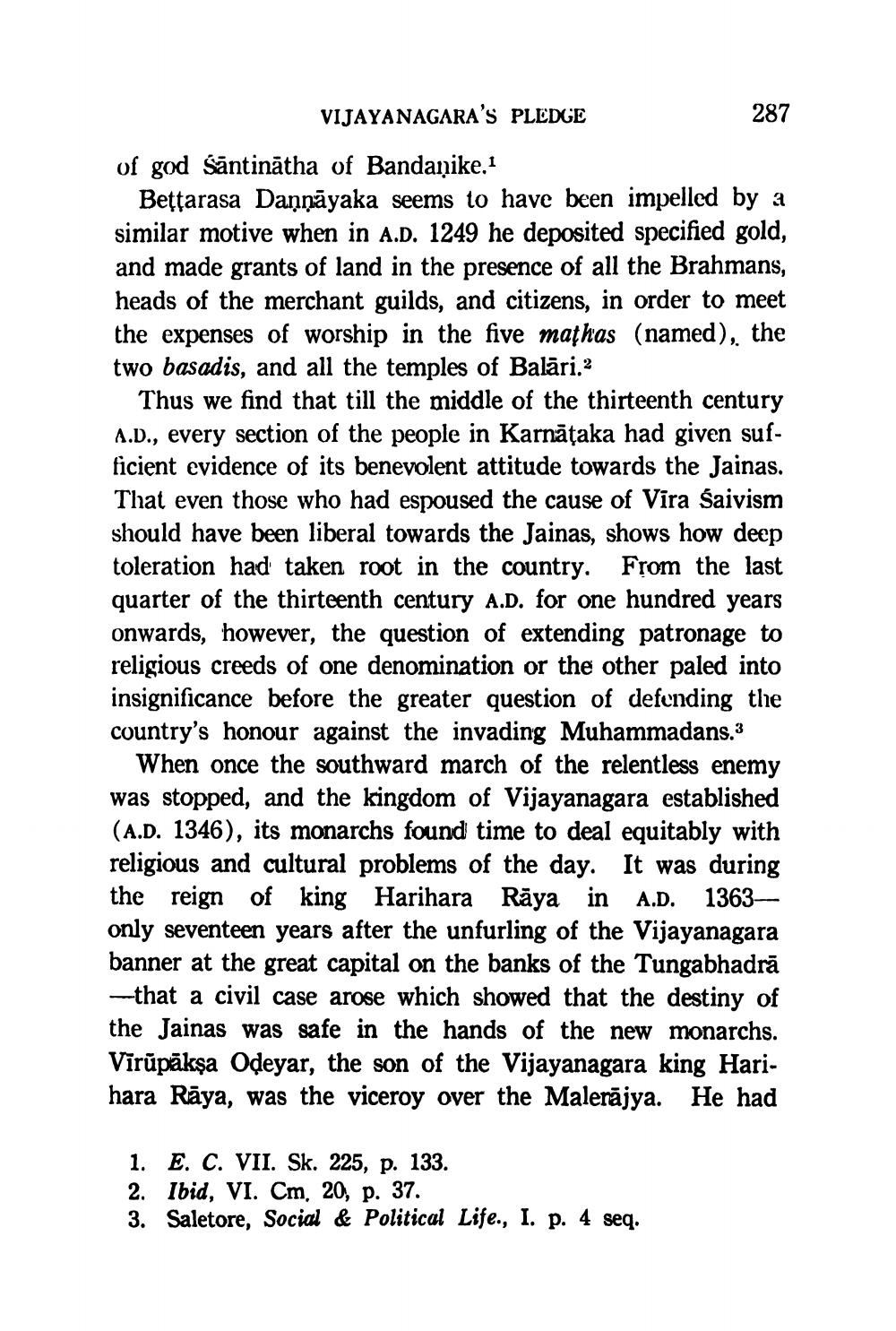________________
VIJAYANAGARA'S PLEDGE
287
of god śāntinātha of Bandaņike.1
Bettarasa Daņņāyaka seems to have been impelled by a similar motive when in A.D. 1249 he deposited specified gold, and made grants of land in the presence of all the Brahmans, heads of the merchant guilds, and citizens, in order to meet the expenses of worship in the five mathas (named), the two basadis, and all the temples of Balāri.?
Thus we find that till the middle of the thirteenth century A.D., every section of the people in Karnāțaka had given sufficient evidence of its benevolent attitude towards the Jainas. That even those who had espoused the cause of Vira saivism should have been liberal towards the Jainas, shows how deep toleration had taken root in the country. From the last quarter of the thirteenth century A.D. for one hundred years onwards, however, the question of extending patronage to religious creeds of one denomination or the other paled into insignificance before the greater question of defending the country's honour against the invading Muhammadans.3
When once the southward march of the relentless enemy was stopped, and the kingdom of Vijayanagara established (A.D. 1346), its monarchs found time to deal equitably with religious and cultural problems of the day. It was during the reign of king Harihara Rāya in A.D. 1363— only seventeen years after the unfurling of the Vijayanagara banner at the great capital on the banks of the Tungabhadrā --that a civil case arose which showed that the destiny of the Jainas was safe in the hands of the new monarchs. Vīrūpākṣa Odeyar, the son of the Vijayanagara king Harihara Rāya, was the viceroy over the Malerājya. He had
1. E. C. VII. Sk. 225, p. 133. 2. Ibid, VI. Cm, 20, p. 37. 3. Saletore, Social & Political Life., I. p. 4 seq.




